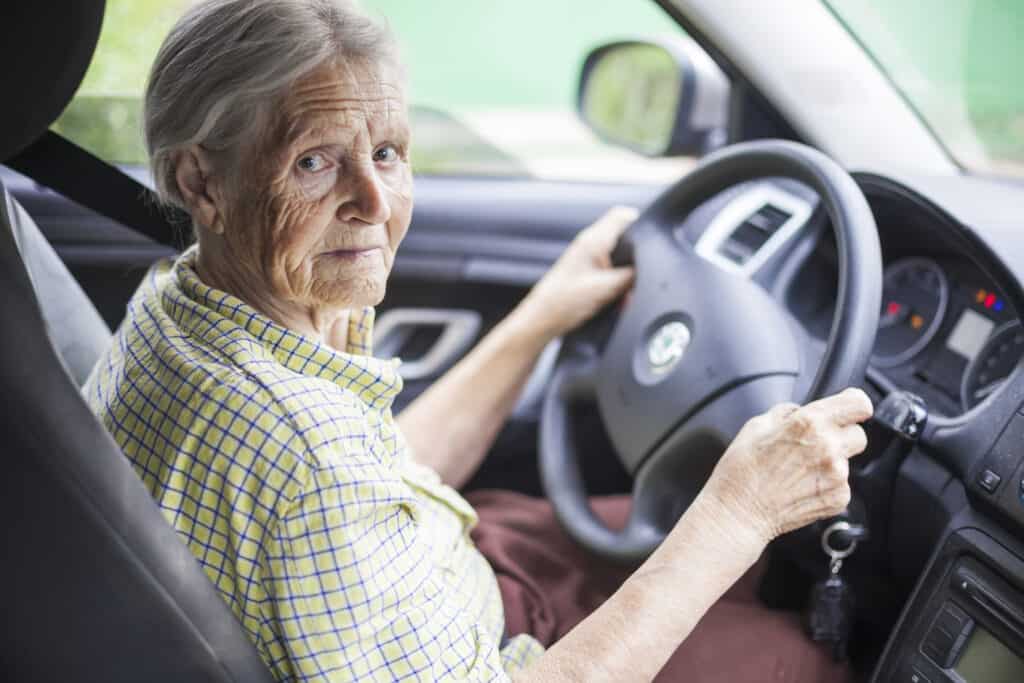Driving, Dementia And The Line Between Personal Independence And Public Safety
This article was written by Dr. Robert Stern, Boston University Alzheimer’s Disease Center (BUADC) Clinical Core.
All too often, I hear the words, “I’d rather die!” from a patient with dementia after being told that they are no longer safe to drive and must stop driving. And, all too often I am told by the loved one of a patient with dementia that they are scared of bringing up the topic of driving cessation for fear of the patient’s anger or sadness.
Driving and dementia is a tremendously complicated and emotionally fraught issue for both patients and their families. Although Alzheimer’s disease and other degenerative dementias result in the progressive impairment of the cognitive skills necessary for safe driving and ultimately require driving retirement, there is great individual variability in how and when these disorders affect driving abilities. Some individuals with mild dementia drive safely for some period of time, while others are unsafe to drive soon after the onset of symptoms. The issue is further complicated by loss of insight that accompanies dementia progression, which may prevent an individual with dementia from making objective decisions about when limiting or stopping driving is necessary.
Deciding when an individual with dementia must reduce or stop driving can be one of the most stressful issues faced by individuals with dementia and their family members, often described as a struggle with the balance of personal independence and public safety. Driving allows individuals to independently stay engaged and connected to friends and family, enjoy an active lifestyle, and spontaneously meet their daily needs. In fact, today it appears that many baby boomers who are entering retirement are more active than previous generations. For many, however, driving is not merely a means of transportation, but, rather, a major aspect of overall independence, autonomy, and freedom. Therefore, as might be expected, driving cessation is associated with a reduction in out-of-the home activity for the retired driver and can cause depression, feelings of isolation, and loneliness. Driving cessation is considered by many to be one of the most significant and deeply personal losses they will face.
Who will make the decision to take the keys away?

Due to the lack of routine screening or other mechanisms for detecting poor driving in older persons with cognitive impairment in Departments of Motor Vehicles, physicians and other health care professionals are often expected to be the ones to make recommendations to patients and their families about driving cessation. However, physicians often feel that they do not have adequate guidelines or assessments that they can use in the office to determine when patients are unsafe to drive. Additionally, physicians are concerned about harming the relationship with their patients and damaging the sense of trust, and may worry about the legal liability of their recommendations. While some physician guidelines advocate referring patients for a formal driving evaluation, physicians may be hesitant to recommend on-road driving assessments because they are expensive (~$500), not readily available outside of urban areas, and not covered by Medicare. Additionally, the progressive nature of dementia necessitates frequent re-testing, further reducing feasibility.
Ultimately, it is the family members who assume the primary responsibility for recognizing and addressing unsafe driving in their loved ones. However, they are left to face this daunting responsibility with few resources to assist them on how to initiate conversations, make decisions about driving cessation, and ultimately enforce these decisions.
There are several important issues that may prevent family caregivers from actively guiding the transition of their loved one from driver to passenger.
- fear of angry or agitated responses from the driver
- feelings of guilt and discomfort in taking away independence from their loved one
- anxiety about how transportation needs will be met (especially true for many older female caregivers who traditionally let their spouse do the driving)
- lack of knowledge about how to determine when driving safety is compromised
- lack of support from other family members in initiating conversations or taking action
Although driving cessation for individuals with dementia is such a difficult and emotional issue for everyone involved, there are several resources available that can help, such as At the Crossroads. In addition, the local chapter of the Alzheimer’s Association offers wonderful guidance as well as support groups for dementia caregivers and for early stage dementia patients. For people, interested in having an on-road driving evaluation, one excellent resource is the DriveWise Program at the Beth Israel Deaconess Medical Center. My group here at the Alzheimer’s Disease Clinical and Research Program (ADCRP) at BU School of Medicine and Boston Medical Center can also conduct office-based clinical evaluations of the cognitive skills necessary for safe driving. The important thing to remember for those dealing with this difficult issue is that you are not alone.